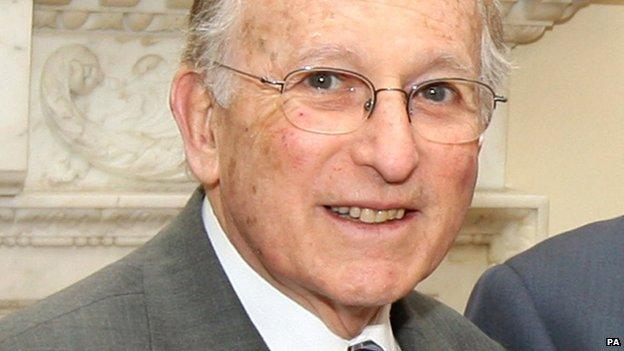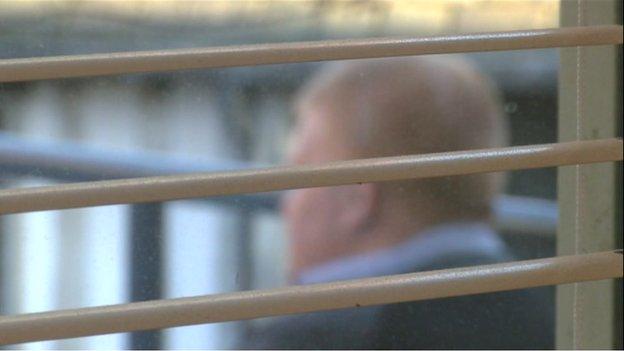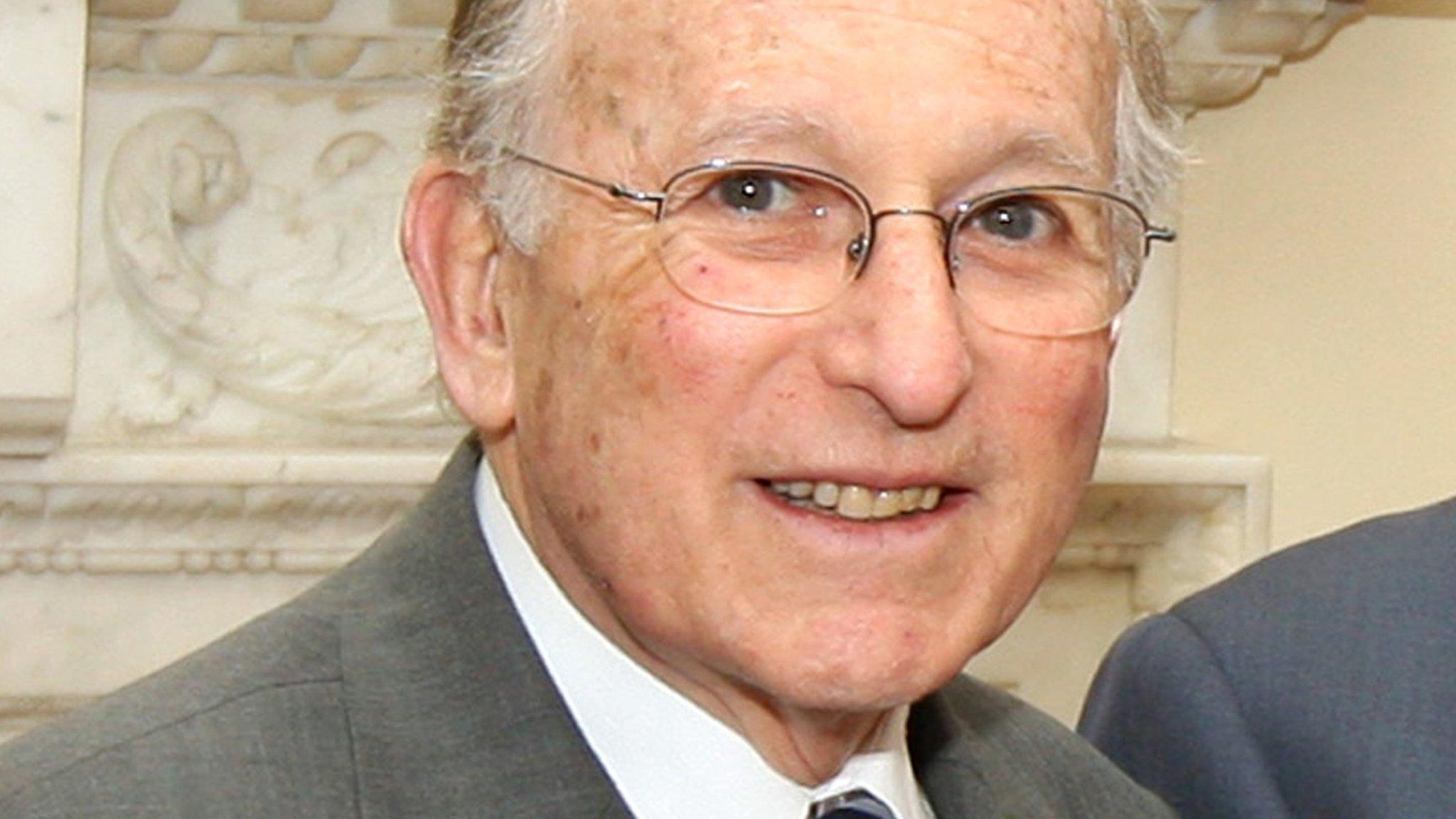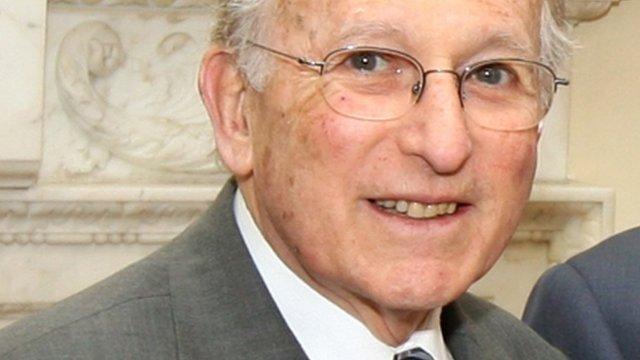Lord Janner still being protected, alleged victim claims
- Published

Greville Janner was Labour MP for Leicester North West and then Leicester West
A man who claims he was abused by Labour peer Lord Janner has said he believes the former MP is still being protected by establishment figures.
The man, now 50, told the BBC he was attacked in the 1970s and 80s at a Leicestershire working men's club but police ignored his complaint in 2007.
Director of Public Prosecutions Alison Saunders, has defended the decision not to press charges against Lord Janner.
She told Newsnight his dementia meant he could "play no part in a trial".
It ruled that while there was enough evidence to prosecute the peer for 22 sex offences against nine people, the severity of his condition meant he was unfit to stand trial.
Ms Saunders told the BBC she made the "right decision" not to prosecute Lord Janner.
The 86-year-old's family said he was "entirely innocent of any wrongdoing".
The allegations against Lord Janner have not been tested in court and remain unproven.

The victim, now aged 50, was interviewed by the BBC
The victim, John - whose full name has not been revealed for legal reasons - said he was being looked after by a family member at the working men's club when he encountered the former MP.
Aged nine or ten at the time, he said he was told to obey the "very important man".
'Can't form trust'
"I believe he used his position in society to do what he did," he said.
"I believe deep down in my heart that he was protected by others and he's still being protected by others."
In the years following the alleged abuse, he said he was left "angry that there was nobody there to protect me".
"I can't form relationships. I can't form trust with anybody. I can't be in a room alone with anybody unless I've got an escape route," he said.
"I did turn to drink to try and forget it, which has caused me some health problems, but now I'm over that and I'm thinking extremely clearly, and I just want to get justice for the victims."
He said his marriage broke down and his relationship with his sons was damaged "because you don't want to be tagged as an abuse victim".

Lord Janner pictured in 1996 - a year before he retired as Leicester West MP
John contacted police in 2007 but said he was told to see his GP.
"They didn't take my details. Afterwards I did make a bit of a stink but they never followed it up," he said. "It was the old culture - pass the buck."
Lord Janner was first linked to abuse in 1991, during the trial of prolific sex offender Frank Beck.
'Fact-based trial'
The politician was interviewed in connection with grooming and abusing a boy, aged between 13 and 15, but the CPS did not pursue the case.
He was investigated again in 2002 and 2006-7 when fresh allegations surfaced, but no action was taken and the case was dropped.
John said he was shocked when, following the latest investigation, the CPS decided not to pursue the charges because of Lord Janner's dementia.
He said there should be a "fact-based trial", which is sometimes used to try defendants who are deemed unfit to be tried.

Lord Janner, pictured here with Tony Blair, has done nothing wrong, his family say
"Then the evidence would be tried in court, not by the establishment. All I want is the truth," John said.
He added he would give any compensation to charity.
"I feel empathy with the other victims because I know what they're going through," he said.
"I feel empathy with the police officers because of their frustration of all their hard work and it's just come to nothing.
"I feel sorry, funnily enough for [Janner's] family, because their loyalties are divided."
Linda Lee, former president of the law society and now chair of Voice, which supports victims and witnesses in Northamptonshire, questioned Ms Saunders' decision.
"This isn't disappointment for the victims, this is distress and the impact on the victims is part of the test whether to prosecute," she said.
"Also, a decision could have been made to have the medical evidence tested by the courts and that is a critical point for me.
"Because this evidence has been looked at by Alison Saunders but not the courts and not subjected to the scrutiny the courts would submit it to."
Peter Garsden, president of the association of child abuse lawyers and a solicitor representing two of the alleged victims, said: "If there is any way he can be placed before a court of law in any sense at all, that would satisfy the victims' requirements for justice.
"Because what they want, after a two-year police investigation, is to be able to give their evidence and be heard and the fact they can't be frustrates and angers them."
- Published24 April 2015

- Published21 April 2015

- Published18 April 2015

- Published17 April 2015

- Published16 April 2015

- Published16 April 2015
